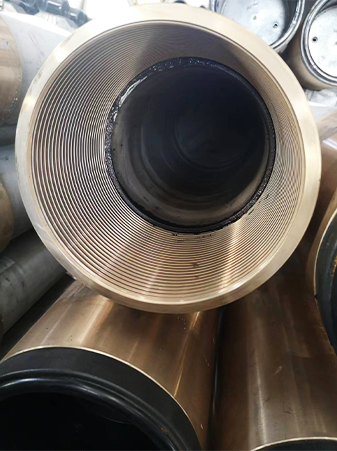- Afrikaans
- Albanian
- Amharic
- Arabic
- Armenian
- Azerbaijani
- Basque
- Belarusian
- Bengali
- Bosnian
- Bulgarian
- Catalan
- Cebuano
- Corsican
- Croatian
- Czech
- Danish
- Dutch
- English
- Esperanto
- Estonian
- Finnish
- French
- Frisian
- Galician
- Georgian
- German
- Greek
- Gujarati
- Haitian Creole
- hausa
- hawaiian
- Hebrew
- Hindi
- Miao
- Hungarian
- Icelandic
- igbo
- Indonesian
- irish
- Italian
- Japanese
- Javanese
- Kannada
- kazakh
- Khmer
- Rwandese
- Korean
- Kurdish
- Kyrgyz
- Lao
- Latin
- Latvian
- Lithuanian
- Luxembourgish
- Macedonian
- Malgashi
- Malay
- Malayalam
- Maltese
- Maori
- Marathi
- Mongolian
- Myanmar
- Nepali
- Norwegian
- Norwegian
- Occitan
- Pashto
- Persian
- Polish
- Portuguese
- Punjabi
- Romanian
- Russian
- Samoan
- Scottish Gaelic
- Serbian
- Sesotho
- Shona
- Sindhi
- Sinhala
- Slovak
- Slovenian
- Somali
- Spanish
- Sundanese
- Swahili
- Swedish
- Tagalog
- Tajik
- Tamil
- Tatar
- Telugu
- Thai
- Turkish
- Turkmen
- Ukrainian
- Urdu
- Uighur
- Uzbek
- Vietnamese
- Welsh
- Bantu
- Yiddish
- Yoruba
- Zulu
casing threads and couplings
Understanding Casing Threads and Couplings An Essential Aspect of Oil and Gas Operations
In the world of oil and gas exploration and production, casing threads and couplings are crucial components that play a significant role in ensuring the integrity of wellbore structures. These elements serve as the backbone for well construction, offering mechanical strength and a reliable seal to prevent leakages of hydrocarbons or formation fluids. Understanding the types and specifications of casing threads and couplings is essential for professionals in the oil and gas industry.
What is Casing?
Casing refers to the series of steel pipes installed in a wellbore to provide structural support, protect against collapse, and isolate different geological formations. It is a key component of well construction and serves multiple purposes, including protecting groundwater, preventing blowouts, and allowing for the safe extraction of oil and gas.
Types of Casing Threads
Casing threads are designed to connect the varying lengths of casing pipes. Each type of thread has its specific application, with several standards developed to ensure compatibility and performance. The most common casing thread types in use today include
1. API (American Petroleum Institute) Threads The API thread is the industry standard for casing threads. These threads are designed according to API specifications, ensuring a tight seal and strong mechanical connection. The most notable variation is the API Buttress thread, which is designed to withstand axial loads and is used in vertical wells.
2. Premium Threads Premium threads are specially designed for specific downhole conditions and offer enhanced mechanical properties over standard API threads. They are engineered to provide better sealing capabilities and resistance to fatigue and corrosion. Examples include threads like the VAM (Value Added Manufacturing) series and the Wedge series, which are widely used in high-pressure and high-temperature applications.
3. Tapered Threads These threads feature a gradual taper that allows for easy alignment and makes it simpler to achieve a tight seal. They are often used in environments where external forces may cause misalignment.
casing threads and couplings

4. Multi-Stage Threads As drilling technology evolves, multi-stage threads are becoming more common. These threads allow for different load distributions and can reduce the risk of failures under multi-directional loading conditions.
The Role of Couplings
Couplings are short pieces of pipe used to connect two lengths of casing. They serve as intermediary connectors that help maintain the structural integrity of the casing assembly. Couplings can vary in design, with threaded ends to fit into casing threads and provide a tight seal. Different configurations of couplings are designed to handle specific stresses and loads, with the most common types being
1. Standard Couplings These are designed to match the API thread specifications and provide adequate sealing and strength for standard applications.
2. Premium Couplings Similar to premium threads, these couplings are engineered for enhanced performance in challenging environments. They often include features such as increased corrosion resistance and improved sealing capabilities.
3. Long Couplings Used when additional length is needed to connect casing segments, long couplings help accommodate variations in depth and wellbore conditions.
4. Specialized Couplings In high-pressure or extreme-temperature scenarios, specialized couplings may be employed. These can include features such as reinforced structures or advanced materials designed to withstand harsh conditions.
Conclusion
Casing threads and couplings are vital components of oil and gas production systems, ensuring the safe and efficient extraction of resources from underground reservoirs. The development of advanced thread designs and coupling technologies has significantly improved the reliability and longevity of wellbore installations. As drilling operations become more complex, the importance of understanding these components cannot be overstated. Industry professionals must stay abreast of the latest advancements in casing technology to optimize well performance, enhance safety, and reduce operational risks. By prioritizing the selection of appropriate casing threads and couplings, operators can ensure the long-term success of their drilling endeavors.
-
Tubing Pup Joints: Essential Components for Oil and Gas OperationsNewsJul.10,2025
-
Pup Joints: Essential Components for Reliable Drilling OperationsNewsJul.10,2025
-
Pipe Couplings: Connecting Your World EfficientlyNewsJul.10,2025
-
Mastering Oilfield Operations with Quality Tubing and CasingNewsJul.10,2025
-
High-Quality Casing Couplings for Every NeedNewsJul.10,2025
-
Boost Your Drilling Efficiency with Premium Crossover Tools & Seating NipplesNewsJul.10,2025







